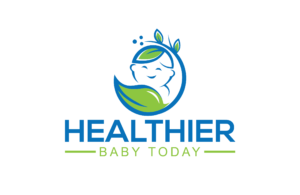Noticing red bumps on your baby’s skin can be alarming. More than 10% of babies have itchy welts, so it’s natural to worry and wonder what is causing it. This article discusses what infant haves are in detail, the potential triggers, and treatment options, including some home care tips – to put your mind at ease. Let’s take a look!
Table of Contents
What Are Infant Hives?
The condition is known as urticaria, in which raised, itchy, red, or colored welts suddenly appear on the body. Spots can be small or big and appear anywhere on the body. In some cases, they go away quickly, while other times, they can last for a couple of days.
Unlike other common baby skin conditions, infant hives tend to appear and disappear rapidly. They can also change shape and location. This is very unusual and can cause parents to panic. The next section discusses the causes so that you have a deeper understanding.
What Causes Hives in Infants?
While the cause may not always be immediately apparent, several factors can trigger hives in infants.
Causes could include but are not limited to:
- Allergic Reactions: This is one of the most common causes among babies. It can include food allergens, bugs, stings, and pet dander.
- Environmental Factors: Changes in the environment, such as temperature, sunlight exposure, pollen, and mold, can cause hives.
- Illness or Infections: Some viral and bacterial infections can trigger hives. This is because sometimes the immune system’s response causes a temporary outbreak.
- Medications: The side effects of medications like antibiotics and certain vaccinations may be another cause. If you suspect this, make sure to talk to a doctor.
- Unknown Causes: In some cases, the cause of infant hives may not be determined. This is called idiopathic hives and is much more common than you think.
Signs and Symptoms of Infant Hives
As aforementioned, this condition can appear anywhere, which includes the face, hands, feet, chest, stomach, and back. Here are some signs that you should be looking out for in your baby:
- Raised, red or skin-colored welts.
- Scratching and restlessness.
- Swelling in the affected area.
When to See a Doctor
Infant hives are typically mild and resolve on their own, but medical attention is sometimes necessary.
Seek medical attention if you notice any of the following:
- Your baby has difficulty breathing.
- They have swelling around the face or throat.
- Hives recur frequently.
- Fever, vomiting and lethargy.
Home Care Tips
- Cool Compress: You can do this by applying a cool, damp cloth to the affected area. This will reduce itching and swelling.
- Gentle Bath: Lukewarm water with hypoallergenic soap can soothe your baby’s irritated skin.
- Harsh Soaps and Lotions: To prevent further skin irritation, use mild fragrance-free products.
- Medication: Some over-the-counter remedies, like antihistamines, can reduce symptoms, but it’s vital that you get your doctor’s approval first.
How to Prevent Hives
It’s not always possible to prevent it, but certain measures can reduce the risk of outbreaks. Take a look down below!
- If your baby seems sensitive to certain foods or pets, try to limit their exposure.
- You can combat the temperature fluctuations by dressing your baby accordingly.
- A great way to identify patterns is by keeping a diary of the symptoms. This includes outbreaks with potential triggers like new foods, medications, and environmental changes.
Parental Support and Coping Strategies
Dealing with infant homes itself is incredibly stressful, and when it occurs, or the cause is unclear, it just makes it worse. Luckily, practical tips and strategies can help parents cope with the situation.
- Stay Informed: This can help parents feel prepared and in control. Just make sure that you don’t overwhelm yourself with all the information. Stick to reputable sources and avoid falling into the trap of excessive Internet searching.
- Trust Your Instincts: This may be controversial, but you know your baby best. If you feel that something isn’t right, seek medical advice or assistance.
- Focus on What You Can Control: Because it’s so unpredictable, it’s not something you can control. So focus on things like your baby’s environment, skin products and tracking potential triggers.
Conclusion
Although infant hives can be unsettling, there are ways to manage them. It starts with understanding the causes, recognising the symptoms, and knowing when to seek medical assistance. This will give you that piece of mind that you were looking for!
Keeping track of symptoms and potential triggers can be incredibly helpful because the cause can be more easily identified. Sometimes, infant hives can be linked to allergies and other health conditions, but that doesn’t automatically indicate a serious problem. If you’re looking for additional peace of mind and guidance, consult your pediatrician. This is especially important when symptoms persist or get worse. Just remember to always trust your instinct as a parent.
FAQs
Can infant hives go away on their own?
Yes, infant hives resolve most of the time on their own without any treatment, which can take anywhere between a few hours and a few days. However, mild cases should be at home with cool compresses and gentle bathing. Persistent hives, on the other hand, need professional help.
How long do hives last in babies?
It can vary from baby to baby. Some hives last a few hours, while others can take up to days to resolve. Acute hives, specifically, usually resolve within 24 hours, but some parents report new hives after the old ones fade. Ensure that you note how long your baby has hives because hives lasting longer than six weeks are classified as chronic hives requiring medical help.
Do some foods cause hives?
Allergens are one cause of infant hives, so if you suspect that food triggered it, it’s best to stay away from it. Common foods that cause allergies in infants include eggs, dairy, peanuts, and seafood.


